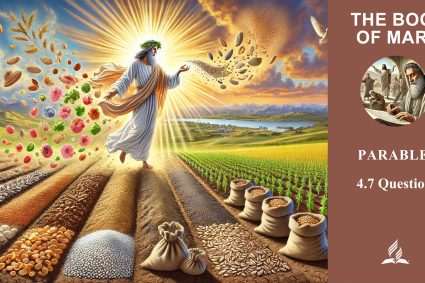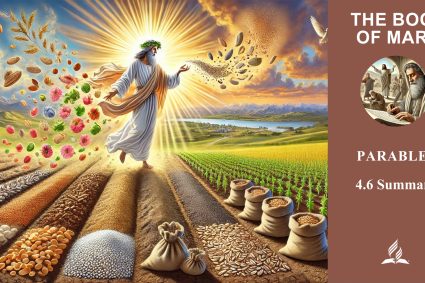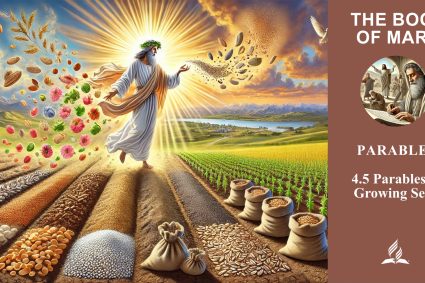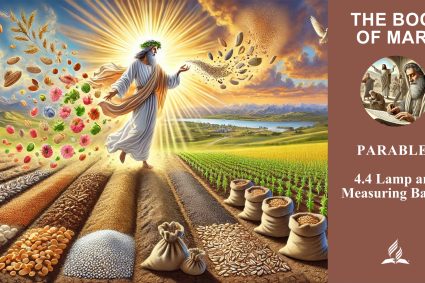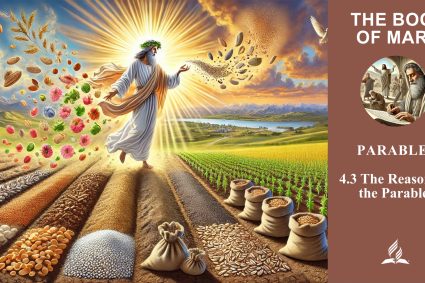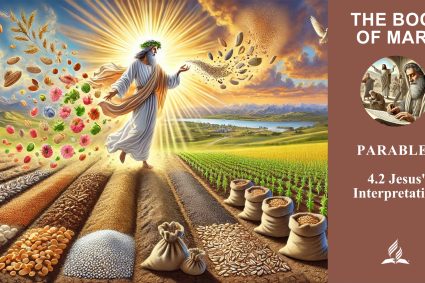


1.3 Planet Earth Becomes Involved
The Decision at the Tree: Origin of Sin and Suffering
This section emphasizes the significance of human freedom and free will that God has granted both in heaven and on earth. It also showcases the subtle yet powerful nature of temptation and how Satan exploited Adam and Eve’s ignorance and curiosity to divert them from God and His wisdom.
The creation story teaches us that God endowed humanity with the ability to make choices and discern between good and evil. He did not create us as programmed beings but as beings with free will, who have the potential to choose for or against Him.
The Tree of the Knowledge of Good and Evil symbolizes human freedom and the responsibility that comes with this freedom. Satan used curiosity and temptation to deceive Adam and Eve, leading them to eat the forbidden fruit. This act of disobedience resulted in the introduction of sin, suffering, and death into the world.
It serves as a poignant reminder for all of us about the importance of vigilance, recognizing the temptations of evil, and resisting them. At the same time, it underscores God’s infinite love and grace, as He always welcomes us with open arms despite our mistakes and imperfections, offering us the opportunity for repentance and forgiveness. It’s a reminder that our choices have consequences and that we always have the option to choose the path of truth, love, and obedience to God.
Read Genesis 3:1–3 and Romans 3:23; 5:12. What do these texts have in common? Describe the ultimate consequences of sin that plague all of humanity.
The given Bible verses from Genesis 3:1–3 and Romans 3:23; 5:12 share several common themes and messages:
-
Human Temptation and Disobedience: In Genesis 3:1–3, the story of Adam and Eve in the Garden of Eden is told, where they are tempted by the serpent (Satan) and ultimately disobey God’s command by eating from the forbidden fruit. Romans 3:23 emphasizes that all have sinned and fall short of the glory of God.
-
The Universal Impact of Sin: Romans 5:12 highlights that sin came into the world through one man (Adam), and through sin, death entered the world, both physically and spiritually. This indicates that the effects of sin are not just individual but also collective and universal.
The ultimate consequences of sin that plague all of humanity are:
-
Separation from God: Sin separates us from God, who is the source of life and love. This separation leads to spiritual death and estrangement from divine fellowship.
-
Physical Death: As mentioned in Romans 5:12, physical death entered the world through sin. This refers to the natural death that all humans experience.
-
Suffering and Pain: Sin also results in the world being plagued by suffering, pain, diseases, and various forms of discomfort. The suffering in the world often directly results from sin and separation from God.
-
Moral and Spiritual Suffering: Sin also leads to moral suffering, guilt, anxiety, worries, and other spiritual and emotional issues.
It’s important to emphasize that not every personal suffering is directly attributable to individual sin. As mentioned earlier, we live in a world plagued by sin, and suffering is often the result of the collective impacts of sin and human disobedience towards God. Nevertheless, God provides a way to redemption, forgiveness, and restoration of our relationship with Him through Jesus Christ, despite the destructive consequences of sin.
Read Genesis 3:15; Leviticus 5:5–6, and John 1:29. What promise did God give Adam and Eve in the garden after they sinned, which should give them hope in their despair? What ministry did He begin in Eden that would point them towards the solution to the sin problem over the centuries?
The mentioned Bible verses contain crucial promises and hints from God regarding the solution to the sin problem and the redemption of humanity:
-
Genesis 3:15: After Adam and Eve sinned, God speaks to the serpent (Satan): “And I will put enmity between you and the woman, and between your offspring and hers; he will crush your head, and you will strike his heel.” This promise is often referred to as the “Protoevangelium,” meaning “the first gospel.” It’s the first prophetic announcement of redemption through Jesus Christ. Here, it’s prophesied that a descendant of the woman (Jesus Christ) will crush the serpent’s head (Satan), though He Himself will be injured in the process. This hints at Satan’s ultimate defeat and redemption through Christ.
-
Leviticus 5:5–6: These verses from the book of Leviticus describe the sin offering in the Old Testament law. They emphasize the importance of repentance and sin offerings as means of purification and reconciliation with God. Although the Old Testament sin offering couldn’t permanently remove sin, it pointed towards the future perfect sacrifice of Jesus Christ that would eliminate sin forever.
-
John 1:29: When John the Baptist sees Jesus, he exclaims, “Behold, the Lamb of God, who takes away the sin of the world!” Here, Jesus is presented as God’s sacrificial lamb bearing the sin of the world. This confirms and fulfills the old sacrificial laws and promises, indicating that Jesus is the ultimate sacrifice for humanity’s sin.
In summary, after their sin in the garden, God gives Adam and Eve the promise that a descendant of the woman will come to defeat Satan and eradicate sin and its effects on humanity. This ministry of promise and preparation for the solution to the sin problem began in Eden and continued throughout biblical history, with the Old Testament sacrifices and promises pointing towards Jesus Christ as the ultimate sacrificial lamb.
The connection of these biblical teachings with our daily lives and faith is profound and relevant:
-
Free Will and Choice: Just as in the Garden of Eden, we also have the freedom and responsibility to make choices today. Every day, we face various temptations and challenges. It’s crucial to be vigilant and make the right choices that draw us closer to God rather than pushing us away.
-
Importance of Vigilance: The subtle and powerful nature of temptation that led to Adam and Eve’s fall in the Garden of Eden is still prevalent today. We must be vigilant and recognize the temptations of evil and resist them. This means living consciously, constantly considering how our decisions and actions influence our faith and relationship with God.
-
God’s Infinite Love and Grace: Despite our faults and imperfections, God always welcomes us with open arms, offering us the opportunity for repentance and forgiveness. This is an encouraging message reminding us that it’s never too late to return to God and experience His boundless love and grace.
-
Redemption through Jesus Christ: The promises and hints from God in the mentioned Bible verses show us the path to redemption through Jesus Christ. In our daily lives, this reminds us that despite the challenges we face, there is hope. Jesus Christ has the power to free us from sin and grant us a new life in communion with God.
-
Importance of Community and Shared Faith: Just as the Old Testament sacrifices and promises pointed towards Jesus Christ, we should also come together as a community of believers to strengthen our faith, learn from each other, and grow together. Our shared hope and faith in Jesus Christ connect us and provide us with strength and comfort during times of trial and suffering.
In conclusion, these biblical teachings teach us that our faith is not just a private matter but has a direct impact on our daily lives, decisions, and relationships with others. They remind us that God loves us, trusts us, and shows us the way to redemption and eternal life through Jesus Christ.

In the story of Adam and Eve, the Bible emphasizes the importance of our freedom of choice and the effects of temptations, while God’s promises and love offer us hope and a path to salvation through Jesus Christ.
Visited 15 times, 1 visit(s) today

